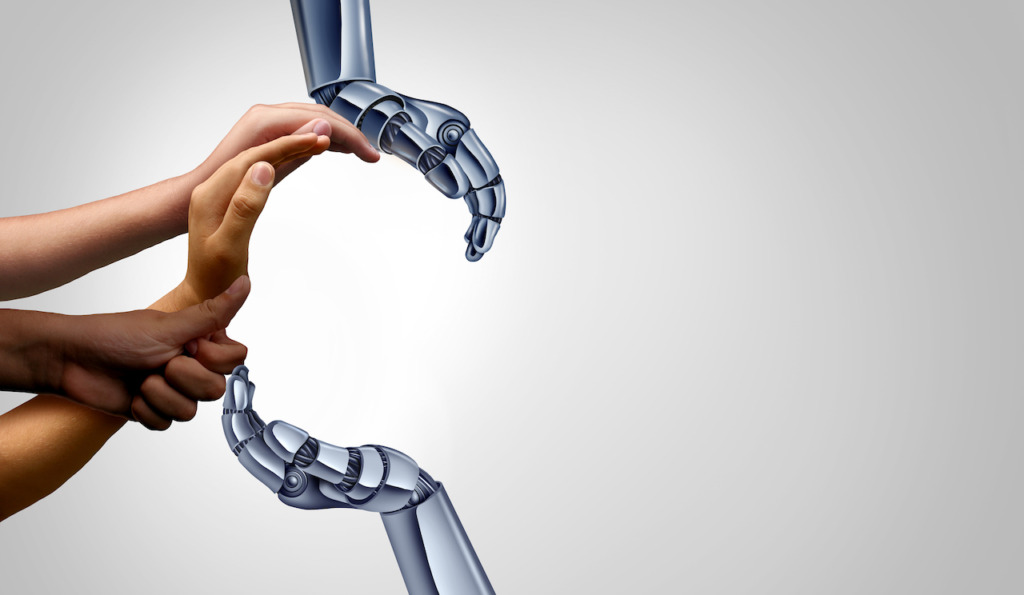Prior to discerning and answering my call to priesthood, I was an architecture major in college. Computer-aided drawing didn’t exist. While we wrote building specification on word processors, we did everything else, drafting and designing, by hand.
This was life in the analog world. CAD (Computer Aided Design) systems would not begin to be widely used until the years after I completed my undergraduate education. The designing and drawing we did often took hours and even days to execute.
I thought about this as I watched Scott Pelley interview Sundar Pichai, the CEO of Google, on “60 Minutes” regarding artificial intelligence (AI) last month. Pichai said one of the professions certain to be affected by AI would be architecture.
Throughout the segment, which included interviews of others involved in AI development, viewers were offered mind-boggling information, e.g., how projects that once took multiple people working months and years could now be done in a matter of seconds due to data farm computers.
While I appreciate technology, I am not immersed and schooled in it. I have a limited idea of what’s involved in AI. I know it’s supposed to be a large network trying to mimic what the human brain does, but on a larger scale. From this the AI system can gather and collect all the information from the internet, learn from it and create new text and images from it.
It is my understanding that AI is based upon probability, similar to the “auto correct” feature on your phone that writes words in your texts based upon the first one or two letters you’ve typed. AI anticipates the next word but doesn’t always get it correct because probability doesn’t necessarily coincide with reality. Something might be more probable but that doesn’t mean it happened or will happen.
It’s going to be in error since it’s working totally out of the abstract realm — hypotheticals and possibilities — of what could be, but not necessarily what is. It has no sense of the subjective nor of the concrete, which we deal with all the time. These are our individual points of view and impact how we act and interact with others.
This is the brave new world this year’s high school and college graduates are entering. It’s a world in which those who are creating AI systems seem to be looking at the world in a materialistic way. Thus, this AI mind/intellect is only a summary of all kinds of data and information. It doesn’t make the connection between the abstract and the concrete which we routinely bring together in our lives and experiences.
That understanding of the unity between body and spirit, between the intellect and the whole person, seems to be missing. If you do not see these as integrated, which we do as Catholics, you are probably going to create something that is in error, something that is not going to be able to function well in the real world.
Unless you are grounded in ethics and moral theology, unless you have a good sense of the human person that faith and the Church reveal to us, it will be difficult to be able to deal with this new world in a way that will respect and care for the good of humanity. When we seek what is good, it is always grounded in the Gospel, in our full reality as a human person — body, mind and soul.
In whatever field of study or area of employment you pursue, it is understandable that many will express uncertainty and anxiety about the power and impact of AI. We can’t dismiss it, but we shouldn’t forsake faith and the spiritual life either.
Those who are educated in the context of the Catholic faith, it seems to me, are in the best position and have the best capacity to make sure technology, all these expansive abilities, are used in a manner that respects, cares for and facilitates the good of the human person.
To all members of the Class of 2023, I encourage you to stay close to the faith as you pursue your professions, especially in technological fields, as that will give you the balance you need. This sober connection with reality will help to counter any abstract power of AI.
In a March address to the “Minerva Dialogues,” a Vatican gathering of an elite group of scientists, Pope Francis noted the “practical benefits of science and technology,” adding that it could “contribute in a positive way to the future of humanity.”
However, he cautioned, “The concept of human dignity – and this is central – requires us to recognize and respect the fact that a person’s fundamental value cannot be measured by data alone. In social and economic decision-making, we should be cautious about delegating judgments to algorithms that process data, often collected surreptitiously, on an individual’s makeup and prior behavior.
“Such data can be contaminated by societal prejudices and preconceptions. A person’s past behavior should not be used to deny him or her the opportunity to change, grow and contribute to society. We cannot allow algorithms to limit or condition respect for human dignity, or to exclude compassion, mercy, forgiveness, and above all, the hope that people are able to change.” [Emphasis added]
May members of the Class of 2023, as well as all of us, take those words to heart as we navigate our AI-impacted lives.

